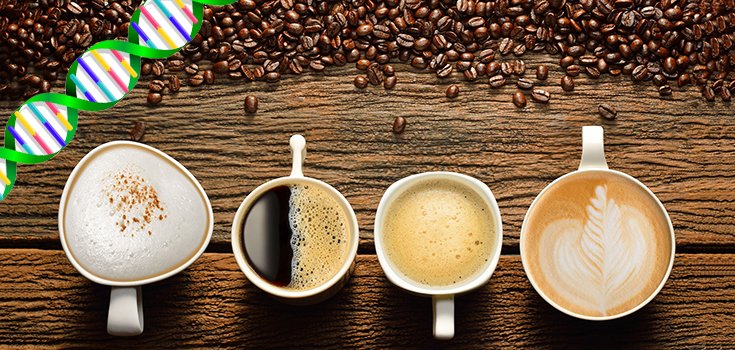Study: If You’re a Coffee Lover, it Might Be in Your Genes

Scientists have identified a gene that may explain why some people have undeniable coffee cravings and hit the coffee pot multitudinous times a day. [1]
For the study, researchers looked at a population of people in villages in Italy, and conducted a genome-wide association study in which they examined markers in DNA and identified a gene called PDSS2 that could play a role in caffeine metabolism.
Italy is the home of several “coffee classics,” including lattes, cappuccinos, macchiatos, mochas, and Americanos, making it the perfect place for such a study.
The Dutch, on the other hand, prefer filter (brewed) coffee. And despite the similarity in caffeine content of the types of coffee, the difference in cup sizes means the Dutch swill nearly three times more caffeine per cup than the Italians. [2]
The team asked 1,207 people in Italy how much coffee they drank and compared their answers and genetic results to another population of 1,731 people in the Netherlands.
Study author Nicola Pirastu, of the University of Trieste in Italy, and her colleagues found that people with greater expression of the PDSS2 gene tended to drink less coffee. [2]
The PDSS2 gene is thought to regulate the production of proteins that metabolize caffeine in the body.
Pirastu wrote:
“The hypothesis is that people with higher levels of this gene are metabolizing caffeine slower, and that’s why they’re drinking less coffee. They need to drink it less often to still have the positive effects of caffeine, like being awake and feeling less tired.” [1]
Pirastu, a geneticist, said that the finding backs the notion that caffeine is one of the primary motivations for drinking coffee.
Past studies have also pointed to genetics as a driving factor in how much coffee people prefer. Numerous gene variants have suggested connections with coffee consumption, and scientists hope that uncovering the mysteries behind mankind’s love affair with the beverage will help them learn about some of the health benefits of drinking coffee. [3]
In recent years, research has emerged suggesting that coffee consumption may reduce the risk of type 2 diabetes, improve colon cancer survival rates, and significantly cut the risk of liver cirrhosis, just to name a few health perks. [4] [5]
In that vein, many of the genes that help the breakdown of caffeine also metabolize certain medications. Understanding these genes could help researchers learn why different patients respond differently to their drugs, and eventually help doctors personalize treatments. [2]
Sources:
[1] Time
[2] The Guardian
[4] Nature
